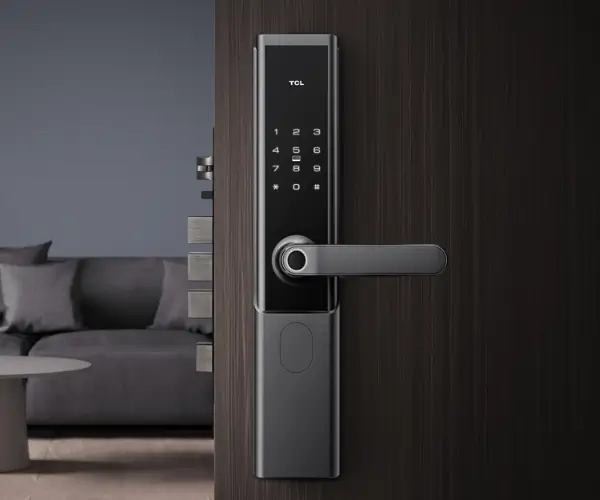Unlocking Power and Precision: Understanding the Difference Between DC and Servo Motors
In the ever-evolving landscape of automation, robotics, and industrial machinery, motors play a pivotal role. They are the workhorses that translate electrical energy into mechanical movement, enabling everything from robotic arms to electric vehicles to function seamlessly. Among the myriad types of motors available, two stand out for their widespread use and specialized capabilities: Direct Current (DC) motors and servo motors. While they may share the common label of "motor," their design principles, applications, and operational nuances are fundamentally different, each catering to distinct needs.

What Are DC Motors?
DC motors are perhaps the simplest form of electric motors. Their core design involves a stator (stationary part), a rotor (rotating part), and a commutator that switches the direction of current in the windings, enabling continuous rotation. They operate on direct current electricity, which can be supplied from batteries or power supplies. The fundamental appeal of DC motors lies in their straightforward design, ease of control, and ability to provide high torque at startup.
Types of DC Motors
Within the broad category of DC motors, there are few main types:
Brushed DC Motors: These are the most common and utilize brushes and commutators to deliver current to the rotor windings. They are simple, economical but require maintenance because brushes wear out over time.
Brushless DC Motors (BLDC): These eliminate brushes and commutators, using electronic controllers for switching. They offer higher efficiency, less maintenance, and better performance at higher speeds.
Advantages of DC Motors
Speed Control: Varying the supply voltage or adjusting the armature circuit allows precise control of speed.
High Starting Torque: Due to their design, DC motors can generate substantial torque right from the start, making them suitable for applications requiring quick acceleration.
Simple Design: Their straightforward construction leads to ease of maintenance and lower initial costs.
Limitations of DC Motors
Maintenance: Especially in brushed models, brushes and commutators wear out over time, requiring replacements.
Sparking and Noise: Brushes can cause electrical sparking and noise, leading to potential EMI issues.
Efficiency at High Speeds: Not always ideal for high-speed applications without complex control circuitry.
Transition to Servo Motors
While DC motors are excellent for general-purpose applications where speed and torque control are needed, they are not designed for high-precision positional control. That’s where servo motors come into play, representing a specialized class of motors combined with sophisticated control mechanisms.
What Are Servo Motors?
Servo motors are a subset of rotary actuators that incorporate a motor, a feedback device (like an encoder), and a control system to deliver precise control of angular position, velocity, and acceleration. Unlike standard DC motors, servo motors are designed to achieve and maintain very accurate positions within a specified tolerance.
Types of Servo Motors
AC Servo Motors: Powered by alternating current, these often feature permanent magnets and are praised for their high efficiency and performance.
DC Servo Motors: These are similar to regular DC motors but integrated with encoding and control circuitry for precision.
Features of Servo Motors
Feedback Control: The defining trait of servo systems is their closed-loop operation that constantly monitors the motor's position or speed and adjusts accordingly.
High Precision: Servo motors are capable of precise positioning with minimal overshoot or steady-state error.
High Responsiveness: They react quickly to control signals, making them ideal for applications demanding rapid adjustments.
Advantages of Servo Motors
Accuracy and Repeatability: They can position loads accurately within fractions of a degree, essential in robotics and CNC machinery.
High Dynamic Response: Quick response times allow for dynamic movements without overshoot.
Integrated Control: Built-in encoders or resolvers facilitate sophisticated control algorithms like PID or fuzzy logic.
Limitations of Servo Motors
Cost: Because of their complexity and feedback systems, servo motors are typically more expensive than standard DC motors.
Complexity: Their control systems require specialized knowledge and tuning.
Maintenance and Troubleshooting: The added electronics and sensors increase the complexity of diagnostics.
Fundamental Differences: A Snapshot
Aspect DC Motor Servo Motor Core Functionality Converts electrical to mechanical energy Achieves precise position and speed control Control Method Open-loop (basic control) Closed-loop with feedback sensors Precision Moderate Very high Cost Generally lower Usually higher Maintenance Brush replacement in brushed types Maintenance of encoders and electronics Suitable Applications Fans, blowers, conveyors, simple actuators Robotics, CNC, medical equipment, aerospace
In essence, choosing between a DC motor and a servo motor hinges upon what you need in your application. If you seek straightforward motion with some control, a DC motor will suffice. However, if your task demands precise positioning, rapid responsiveness, and repeatability, the complexity and cost of a servo motor are justified.
In Part 2, we'll delve into specific application scenarios, comparative performance analysis, and considerations to help you decide which motor type aligns perfectly with your project goals.
Kpower has delivered professional drive system solutions to over 500 enterprise clients globally with products covering various fields such as Smart Home Systems, Automatic Electronics, Robotics, Precision Agriculture, Drones, and Industrial Automation.




































